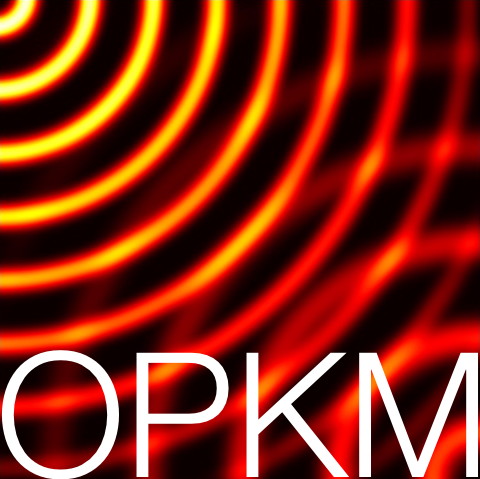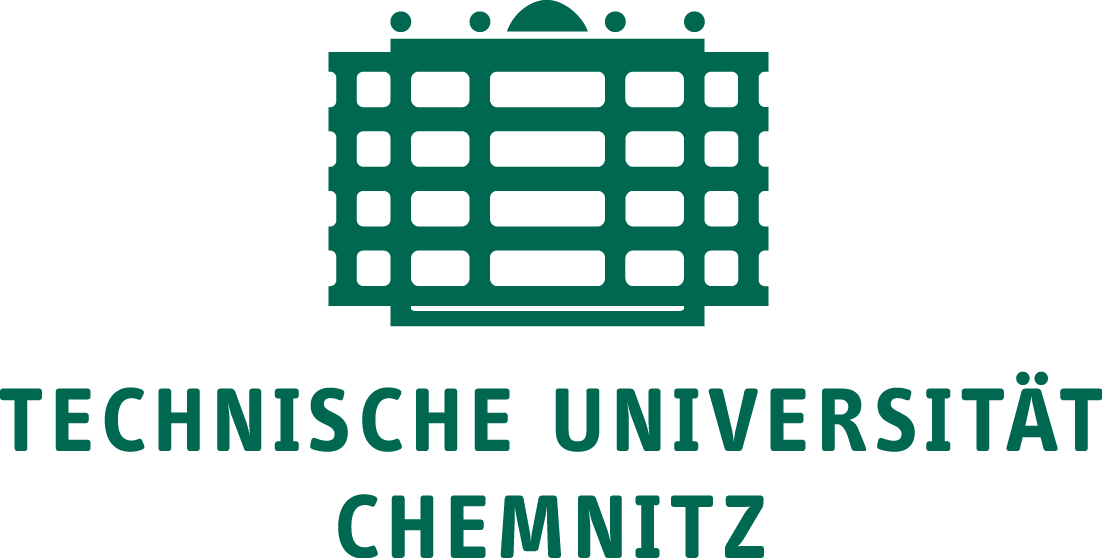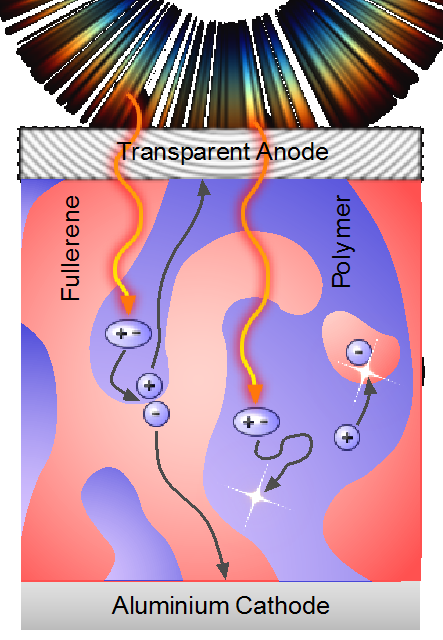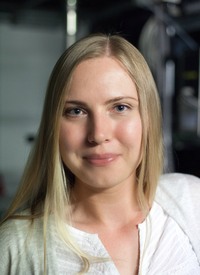

| Project: | ESR-4: PhD at Chemnitz University of Technology, Germany |
| Topic: | Characterisation of spin dependent loss mechanisms in organic solar cells |
| Research (ESR) | Ms. Maria Saladina |
| Supervisor: | Prof. Dr. Carsten Deibel |
Characterisation of spin dependent loss mechanisms in organic solar cells

Background: Organic solar cells can be processed at low temperatures, for instance by printing or by thermal evaporation of suitable organic semiconductors. The devices can be made with high throughput at low cost. On the lab scale, power conversion efficiencies of 12% have been achieved. In order to improve the performance and lifetime, intense research is needed to understand and exploit the physics of organic solar cells. The project work proposed here intends to contribute to this purpose.
Topic: The researcher will be trained in fast spectroscopic techniques, namely nanosecond transient absorption (an all-optical pump–probe technique) and time delayed collection field technique (a fast optical pump–electrical probe technique) with the aim to study photogeneration and recombination of charge carriers in organic solar cells. These investigations will be done in dependence on parameters such as the electric field and temperature. The experimental results will be modelled and related to experimental and theoretical findings by partners in the European project SEPOMO. The researcher will perform secondments of at least one month length at some of the project partners: the organic solar cell company Heliatek in Dresden for the processing of solar cells; the University of Würzburg for performing spin-sensitive experimental techniques; the University of Mons doe the design and synthesis of organic molecules.
Contact:
Prof. Carsten Deibel, Phone: +49 371 531-34878, Email:
Group web: www.tu-chemnitz.de/physik/OPKM
Maria Saladina
 Maria Saladina is a Ph.D. student in the group of Optics and Photonics of Condensed Matter at TU Chemnitz. Born and raised in Estonia, she picked up an early love of both science and nature, and has found the balance of her dual interests in the effort to solve the climate change challenge. Maria went on to study applied physics and graduated cum laude from her M.Sc. from Tallinn University of Technology. Her master’s thesis focused on theoretical calculations of physical properties of the hybrid perovskite materials. She also has a Master of Science in Engineering from the same university. Before joining the group of prof. Deibel, Maria worked as an industrial engineer and project manager for a power technology manufacturer where she has led various projects, several of them related to solar industry. As part of her Ph.D. research, she focuses on the studies of geminate and non-geminate recombination in organic solar cells.
Maria Saladina is a Ph.D. student in the group of Optics and Photonics of Condensed Matter at TU Chemnitz. Born and raised in Estonia, she picked up an early love of both science and nature, and has found the balance of her dual interests in the effort to solve the climate change challenge. Maria went on to study applied physics and graduated cum laude from her M.Sc. from Tallinn University of Technology. Her master’s thesis focused on theoretical calculations of physical properties of the hybrid perovskite materials. She also has a Master of Science in Engineering from the same university. Before joining the group of prof. Deibel, Maria worked as an industrial engineer and project manager for a power technology manufacturer where she has led various projects, several of them related to solar industry. As part of her Ph.D. research, she focuses on the studies of geminate and non-geminate recombination in organic solar cells.
